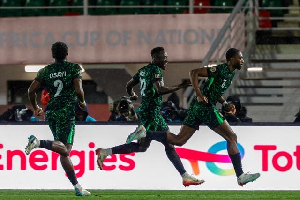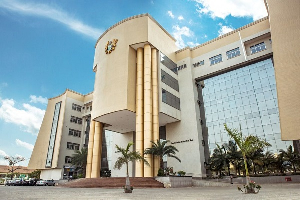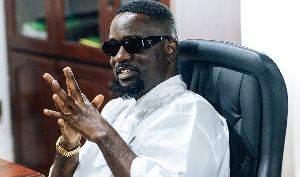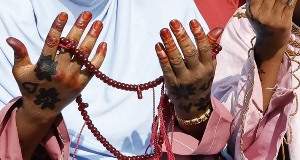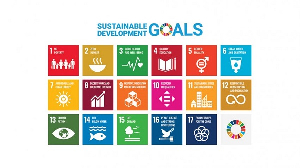“He who plants trees loves others besides himself.”-Thomas Fuller
Global forest resources continue to dwindle. Worldwide deforestation continues at an alarming rate: 7 million hectares of forest are destroyed every year.
On March 1, 2019, the United Nations issued a global ‘call to action’ to mobilize the political and financial support necessary to restore the world’s deforested and degraded ecosystems over the coming decade to support the wellbeing of 3.2 billion people around the globe.
With this call approved by the UN General Assembly, more than 2 billion hectares of forest – an area larger than the South American continent – stand to be restored from 2021 to 2030.
The call to action emphasized on scaling-up of restoration work to address the severe degradation of landscapes, including wetlands and aquatic ecosystems, worldwide. It is to boost landscape restoration work to the top of national agendas, building on a public demand for action on issues such as climate change, biodiversity loss, and the resulting impacts on economies and livelihoods.
For a developing country like Ghana where according to the National Climate Change Adaptation Strategy, forest area accounts for about 40% of the total national land and provides livelihood for more than 2.5 million people yet human activities and high levels of exploitations continue to accelerate deforestation, this call to action couldn’t be any better – especially in the race to achieve the 2030 Agenda for Sustainable Development and the Sustainable Development Goals (SDGs).
According to data from the Forestry Commission, with a 3% annual loss of forest cover, Ghana's forest resources face pressures from mining, agricultural encroachment logging and other human activities. At this speed, Ghana runs the risk of remaining in its present status of a net emitter of CO2 if it is unable to halt deforestation and forest degradation, the FC fears.
Launched on 1 July, 2018 in Tamale, The Green Republic Project (TGRP) is a youth-driven grassroots effort to make Ghana green again. This initiative led by a youth advocate, Nana Osei Darkwa is on a mission to plant 20 million trees across Ghana by the year 2028.
The project has so far seen the planting of approximately 7,500 trees across some selected communities in Ghana, with plans to plant 100,000 trees in the Eastern and Northern regions in 2019.
“The Green Republic Project is our response to the challenge of climate crisis that is threatening human existence and development. The UN 2015 Paris Climate Conference (COP21) set the state for humanity to do more on forests to eliminate deforestation and also drive the effort for reforestation. TGRP aims to convince a lot of young, influential and powerful people to pledge and help plant 20 million trees by 2028,” the convener for the Green Republic Project , Nana Yaw Osei-Darkwaa explains.
“The devastating effects of Galamsey (illegal mining) menace on the environment especially the destruction of large tracks of forest belt for illegal gold mining makes the Green Republic call even more justifiable and pressing for Ghanaians especially the youth,’’ he adds.
The project takes advantage of cultural activities like festivals and durbars at the grassroots level to preach the need humans to plant and protect existing trees. This is done through the involvement of community leaders, state institutions, heads of schools and school children. At the group’s tree-planting drive at Yong Dakpam Yili and Sang in the Mion District of the Northern Region where in collaboration with Humano Energy, a leading oil firm, the Forestry Commission, and the Northern Regional Coordinating Council planted 3.500 and 4.000 trees, respectively, the group noted that the project was a creative response to the challenge of climate crisis threatening human existence and development.
“As leaders of tomorrow, the youth of Ghana have a sacred responsibility to play active roles in finding lasting solutions to challenges of the present that has the potential to negatively impact the future. As young people who will have to endure the repercussions of a deforested nation one of which remains climate change and global warming, we have decided to purchase the future with the present by acting decisively today through tree planting,” he noted.
The goal of the project is not just to instigate the planting of millions of trees across Ghana but to ensure communities pay sustained attention to issues bothering on climate change. To this end, every single tree planted is left in the hands of the community leaders, community members, school leaders and children who are made to understand the repercussions of deforestation.
“We just don’t go and plant the trees and leave, we make sure the people at the local level own the project. We have even had instances where schools and local chiefs have donated idle lands to be used for this project. In Tamale for instance, we had the paramount Chief of Tamale, Dakpama Alhassan Dawuni rallying his youth to embrace the initiative.
This year we intend to plant 100,000 trees; 50.000 trees in the Eastern Region and 50.000 Northern Region respectively.
Already the TGRP has received international recognition. The Convenor of the project was invited to speak at The Global Landscapes Forum 2018 in Bonn-Germany, where he called on global leaders to consider the climate crisis as the most defining challenge of our time and a war that must be won through the reconciliation of humanity and nature.
With available data suggesting that Ghana lost a whopping 60% of its forest cover from 1950 to the turn of the last century, this project if successful would become the biggest reforestation project in the history of Ghana.
The Sustainable Development Goals (SDGs) is a universal call to action to end poverty, protect the planet and ensure that all people enjoy peace and prosperity by 2030. The SDGs encourage a spirit of partnership between governments, private sector, research, academia and Civil Society Organisations (CSOs) to join hands in ensuring that the right choices are made now to improve life, in a sustainable way, for future generations.
Like the universal call by the United Nations to mobilize the political and financial support necessary to restore the world’s deforested and degraded ecosystems, initiators of the TGRP at a recently held TGRP maiden Climate Benefit Dinner event in Accra rallied corporate champions and captains of industry, as well civil society organizations to be committed in the fight against climate change by supporting the planting of tree as a natural climate action portfolio.
He went ahead to propose that Ghana institutes its own National Tree Planting Day, preferably July 1st of every year, where every Ghanaian would step out to plant trees. In furtherance, the project convenor proposed that the Ministry of Local Government and Rural development must ensure that all districts and regions and constituencies to mandatorily develop green belts.
“Forestry experts have cautioned that Ghana’s forests could be depleted in the next decade if care is not taken and prudent measures deployed to check the crisis rate of deforestation. We can’t continue to lose our trees as a people. Nothing happens by not doing anything. We must take deliberate steps to help avert the impending climate danger, this is not something we can pray away because the good Lord provided us the trees to play strategic roles but we have decided for our own parochial interest to destroy them and so will pay the price if we do not restore,” he told the assembled business leaders.
According to World Health Organization report of 2018, 23,000 Ghanaians die each year from air pollution related diseases. The demand for forest products and services in Ghana is growing rapidly. This phenomenon fuelled by a growing population and an expanding economy makes the Green Republic Project and the call for a National Tree Planting Day worthy to be supported.
Opinions of Wednesday, 17 April 2019
Columnist: Attah-Effah Badu





